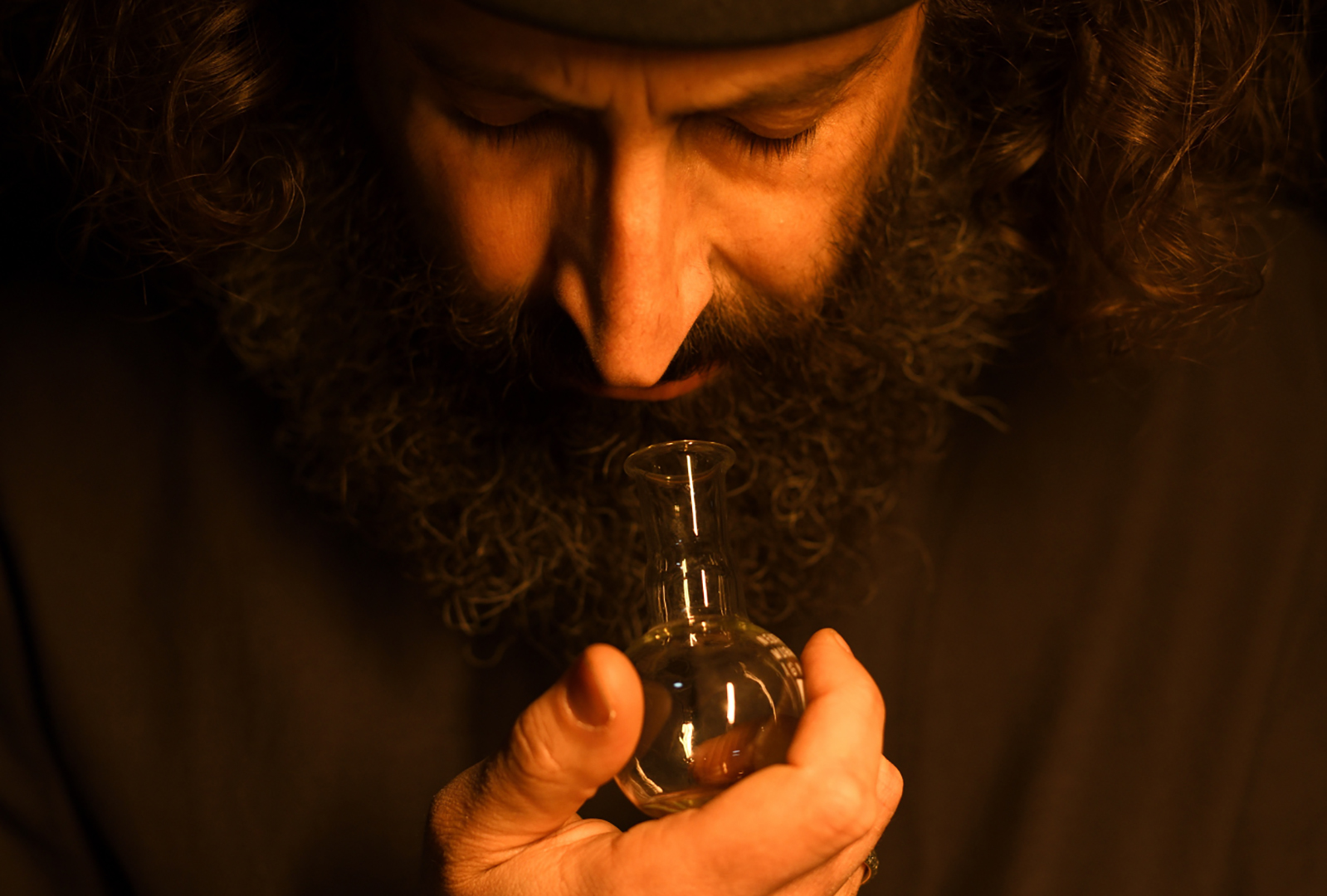
By Rebecca Ceccatelli and Giulia Piceni. Photographs courtesy of Meo Fusciuni.
Meo Fusciuni, a perfumer and poetic voice, has transformed fragrance into a language of memory, silence, and deep emotion. Behind this pseudonym lies Giuseppe Imprezzabile, an Italian alchemist of the invisible—one who distils not only essences but also thoughts, landscapes, and silences. With a background in chemistry and ethnobotany, he navigates the world like a modern-day flâneur of scent, gathering fragments of places, poems, rituals, and inner visions.
His perfumes are not simply compositions; they are elegies suspended in air—meditations on time, absence, and the ephemeral beauty of existence. To experience a Meo Fusciuni fragrance is to open a page of a diary written with raw materials; it invites you to enter a sacred space where language fades, and only emotion remains.
In this conversation, he reflects on the role of perfume as an experience, a spiritual trace, and a narrative—a way of remembering, becoming, and listening to the world without the need for names.
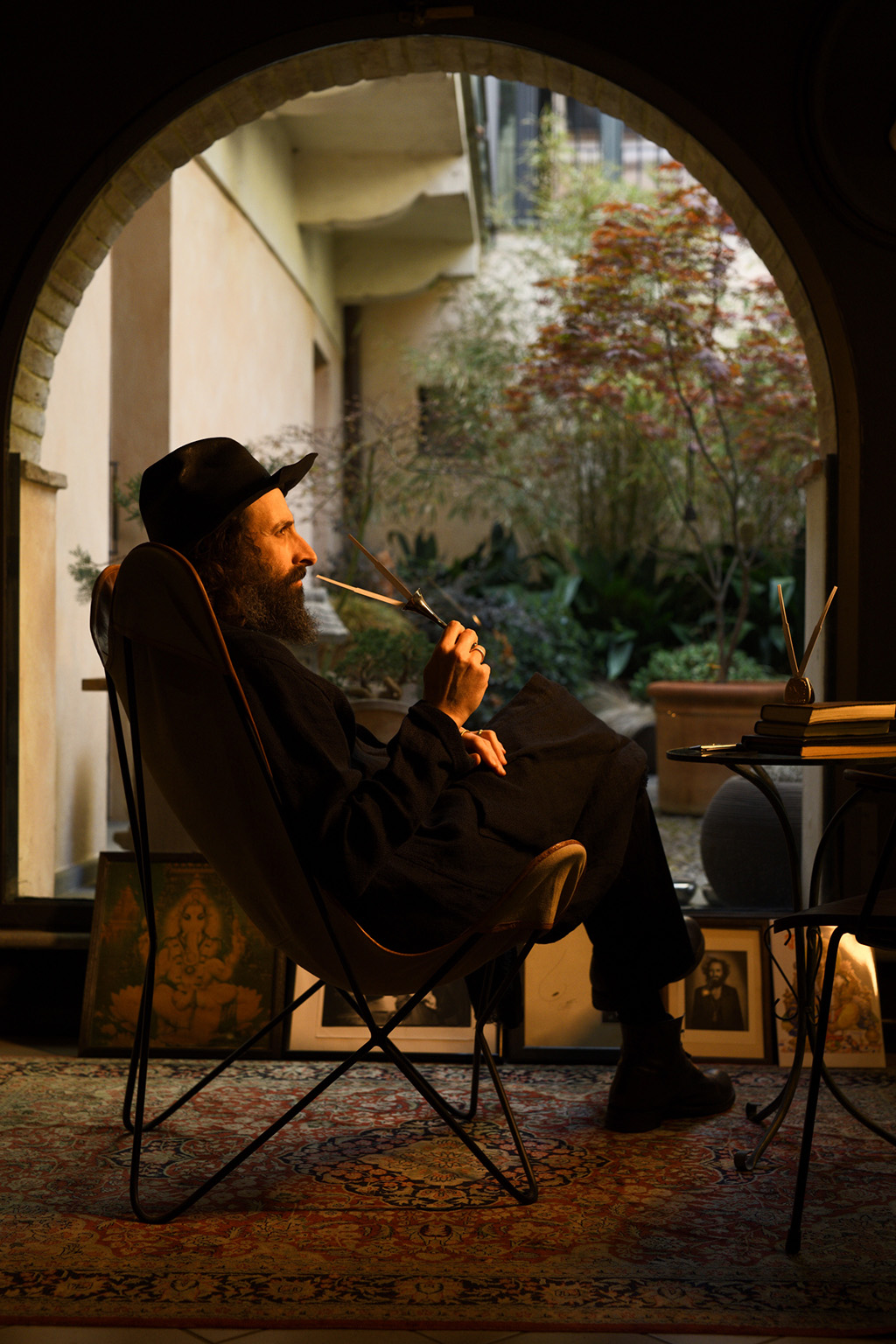
Perfume Is Born from Emotion
When working on fragrance creation, we’d like to start by asking: how does a perfume first come to life in your mind, even before it takes shape in the lab?
For me, perfume embodies urgency, a state of mind, a journey—a quest for self-discovery in this world. It comes into being because I have something to tell myself, even before sharing it with others. Creation can be inspired by a specific event in my life, which makes it tangible and real. Still, it can also stem from a journey when I’m away from my everyday environment and therefore more open to external influences. I have always viewed perfume as the olfactory reminder of my experiences. Everything begins with emotion and takes shape even before I enter the lab and start translating that emotion through raw materials.
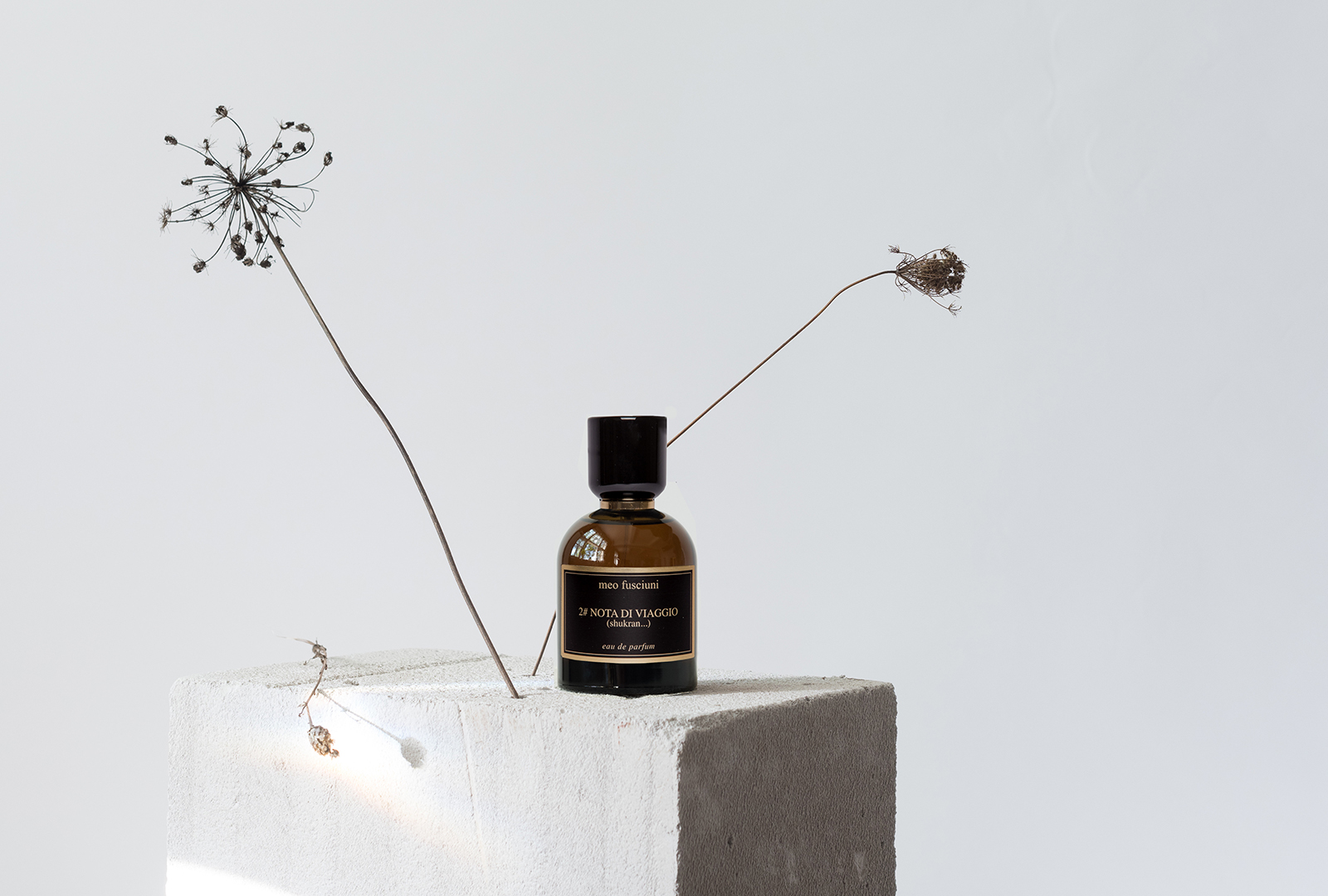
Voicing the Power of Fragrance
You have a distinctive way of expressing your fragrances through storytelling, in both spoken and written forms. Would it be accurate to describe your fragrances as stories, or scents that can be translated into words?
I consider our collection a story. Each fragrance is a chapter of our life—an olfactory translation of text—because the word always comes before the perfume, and poetry always precedes the molecule. Our collection could be likened to a book, with each chapter conveyed through a scent. I’ve always sought a subtle connection between words and smells.
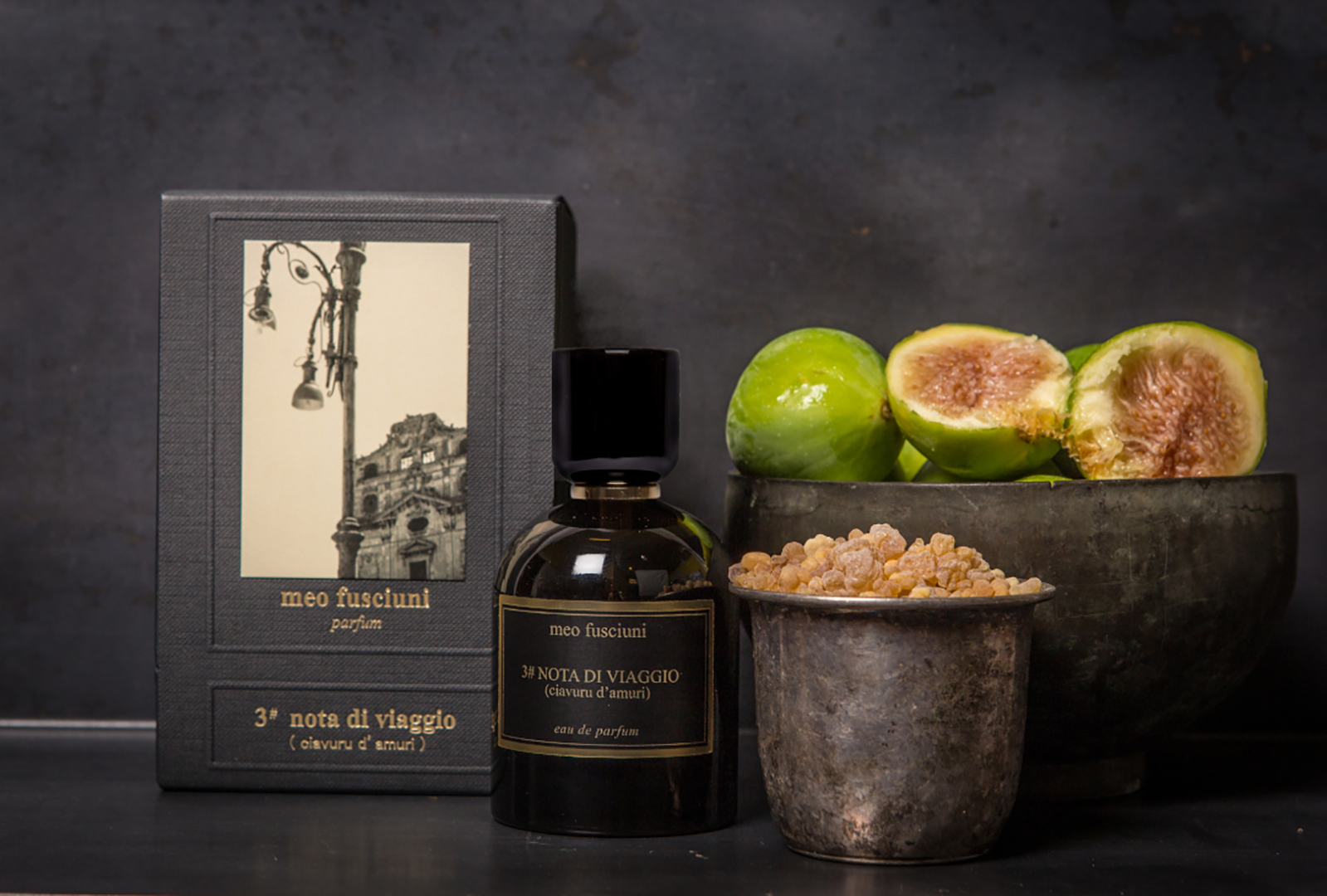
Words, Intoxication, and Control
What kind of relationship do you have with words? Do you feel the need to control them, or do they intoxicate you, like a perfume?
I think my connection with words is instinctive—a courtship that begins from afar. Occasionally, I write the name of a perfume in my journal and revisit those pages after some time has passed. I find it essential to let the emotions that a word or text evokes steep and develop. I love the form of poetry—its silences and empty spaces. Poetry disarms me, shelters me, and reveals my true self. Just a few, silent words can hold profound significance.
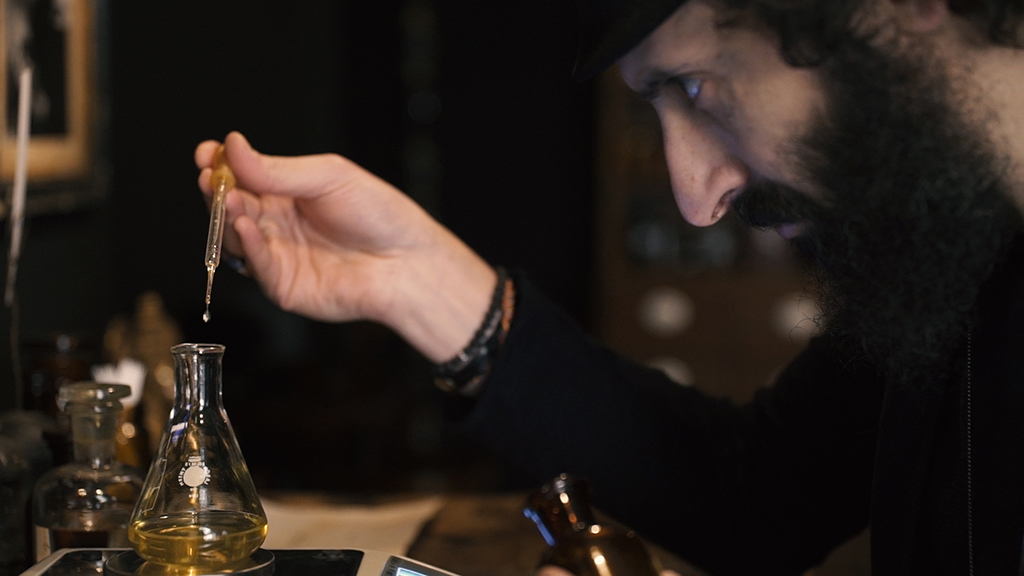
Books That Reshape Our Language
What has been the most enlightening book or text you’ve ever read, and how did it change your approach to words?
Over time — throughout my life — the words I’ve read and reread, the many books, the countless classical and contemporary writers, have forever influenced my life, my personal view of the world, my memory, my way of creating and perceiving perfume. The poetic aesthetics of Hölderlin, Rilke, and Goethe have forever shaped my language and my concept of beauty. Pasolini, Carmelo Bene, Vittorini, and Mariangela Gualtieri perhaps made all my work more human, visceral, and profound.
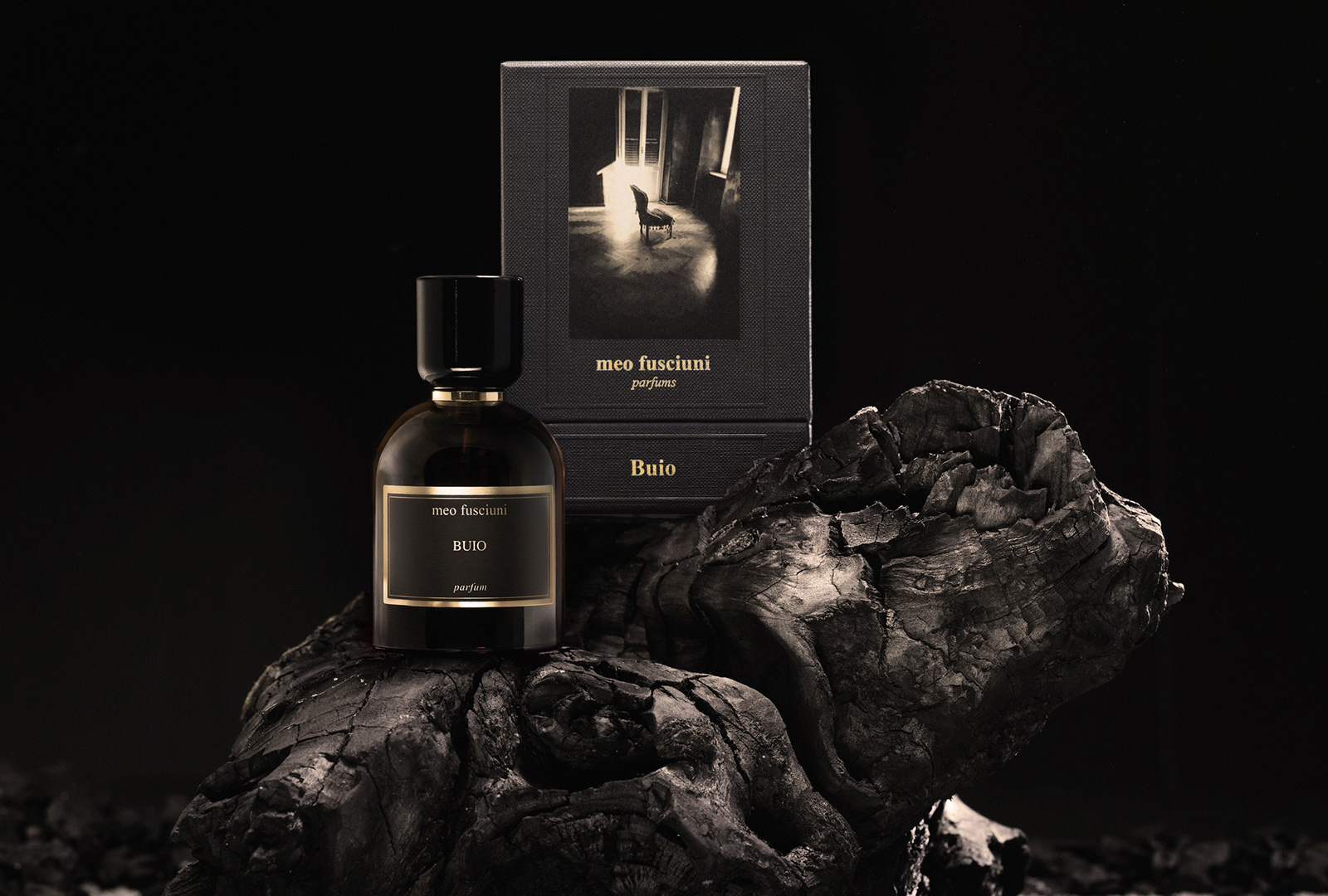
The Ritual Behind the Creative Process
If you could describe those rituals or habits that help you achieve a creative state, what would they be? Does writing play a role in this process?
Sound helps me; it acts as an emotional key, unlocking the doors to words. The gestures I use have always been the same for years. I approach my collection of vinyl records, searching like a dowser for the source of inspiration to begin a new journey. Once the room is filled with sound, I open my journal and jot down a few words. From there, the journey begins. If it’s a real, physical journey, I try to lose myself in the horizon of the place I’m in, or I speak to the night, seeking an epiphany through the written word.
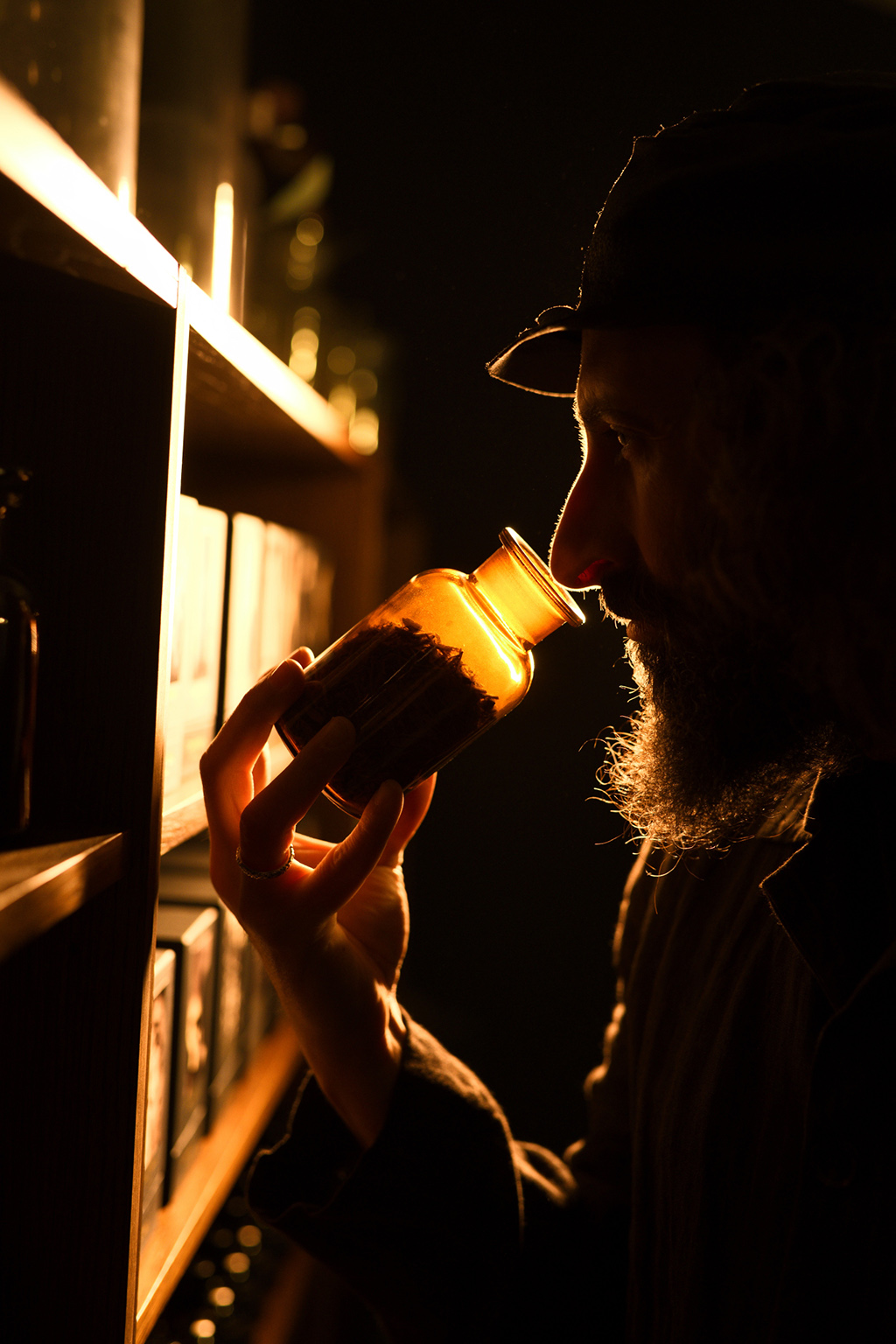
Text as a Form of Intelligence
Have you ever thought of text as a form of intelligence? What, then, is intelligence?
I’ve never thought of text as intelligence; rather, I see it as a medium—a gift that allows human beings to share the story of life. For me, it is the fragrance that enhances the word, and the word that tells the story of the perfume. The words resonate with me; within them, I find life and the essence of humanity. In text, I find refuge.
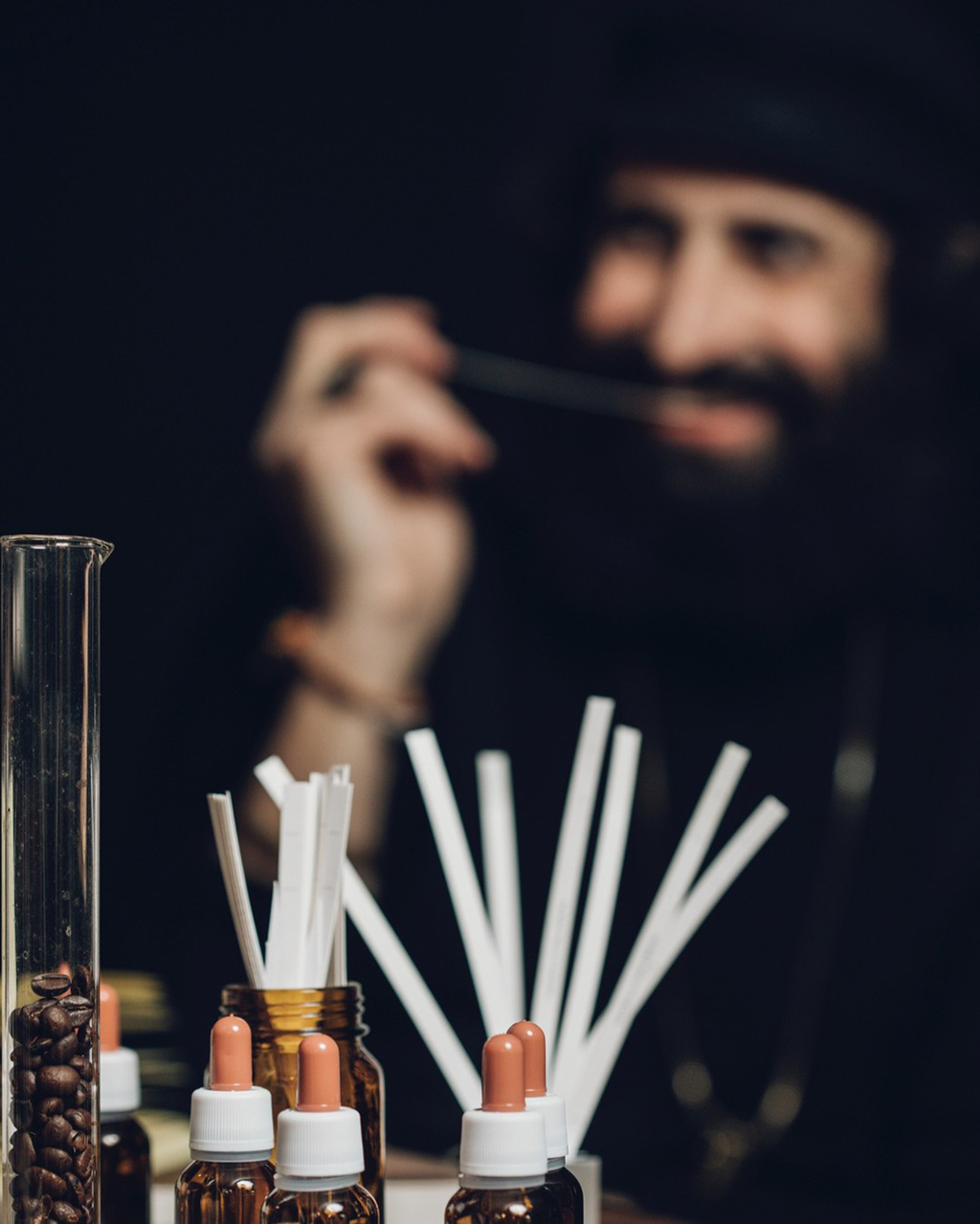
How can different types of intelligence (natural, artificial, human) collaborate creatively? Do you feel a stronger connection to one type?
I believe that natural intelligence resonates most closely with my spirit and nature. It often feels like many of the perfumes I have created encapsulate the essence of nature, and it is only through my deep connection with it that I have been able to bring these creations to life.
A first version of this interview was published in Title(s), I’M Firenze Digest first printed edition, published for TEXT(S)TURE(S), Istituto Marangoni Firenze Fashion Show 2025.




